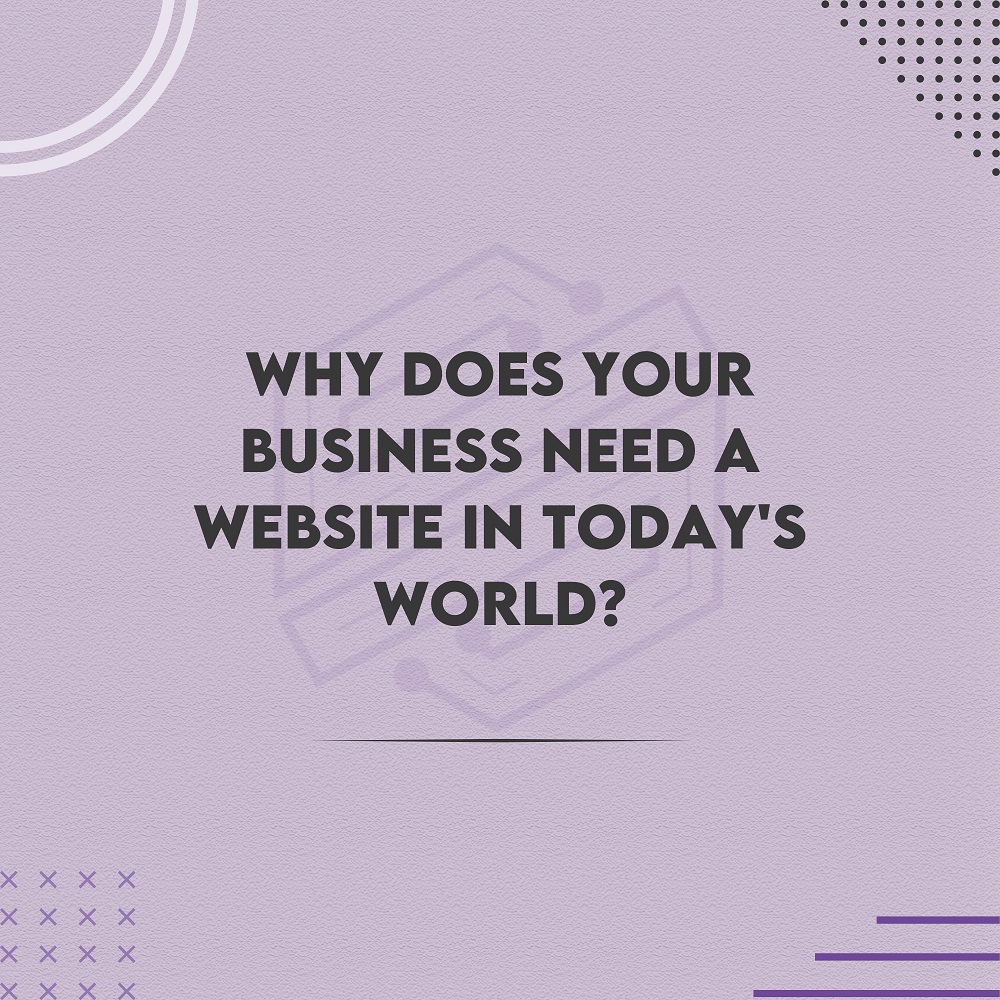In today’s world, having a website for your business is essential for several reasons:
24/7 Availability: A website can keep your business available to potential customers 24/7, even when your physical location is closed. This constant availability increases the chances of reaching and connecting with a wider audience.
Global reach: Your business can reach not only local customers but also a global audience. This versatility expands your market power and can attract customers from different regions or countries.
Search Engine Visibility: Having a website will increase your visibility on Google and other search engines. By optimizing your website for search engine optimization (SEO), you can increase your chances of appearing in search results when potential customers are searching for the product or service you offer.
Consumer Convenience: A website provides a convenient way for consumers to learn about your business, search for products or services, and make purchases from the comfort of their homes. This feature can improve the customer experience and encourage repeat business.
Competitive advantage: In today’s competitive business environment, having a website is often a necessity to stay ahead of the competition. A well-designed and informative website can set your business apart and attract customers who value an online presence and accessibility.
Credibility and Trust:
Professional Image: A polished website exudes professionalism and expertise, projecting an image of a trustworthy and capable business. It acts as a digital showcase, visually presenting your brand identity, principles, and products or services clearly and engagingly.
Information Accessibility: A website serves as a central hub where customers can easily find essential information about your business. This includes contact information, product or service details, pricing, and customer reviews. Such transparency and accessibility foster customer confidence and credibility.
Customer Reviews and Testimonials: By displaying customer reviews and testimonials on your website, you can establish trust and showcase positive experiences from previous customers. Positive feedback from satisfied customers can build trust among potential customers.
Contact and Communication: A website with clear contact information, such as email addresses, phone numbers, and contact forms, allows customers to quickly find your business. Responsive communication builds trust by showing accessibility and responding to customer inquiries.
Security and Privacy: Implementing security measures on your website, such as SSL certificates for data encryption and secure payment gateways for online use, gives customers confidence in the integrity of their information and what’s safe. Prioritizing security and privacy builds trust in your business.
Consistency and Branding: A regular online presence through the web reinforces your branding efforts and messaging. When customers encounter a professional and cohesive website that matches your brand identity, they trust your business and view it as trustworthy.
Marketing and Branding:
Online Presence: A website serves as a virtual platform to showcase your products or services, reach potential clients, and sell your logo. It acts as a significant hub for all your marketing efforts, providing a regular logo reveal to visitors.
Brand Visibility: A properlydesigned website reinforces your brand identification through elements like emblems, color schemes, and messaging. Consistent branding of your website enables clients to apprehend and remember your commercial enterprise, strengthening the logo attention.
Content Marketing: Your website allows you to create and share precious content, including blogs, articles, movies, and infographics, to interact with your target market. Content advertising not only educates and entertains visitors but also complements your brand’s authority and credibility.
SEO and Visibility: Optimizing your internet site for search engines (search engine marketing) will increase your visibility in online searches, driving organic traffic to your site. By incorporating applicable key phrases, meta tags, and outstanding content, you could improve your website’s rating and entice greater traffic.
Social Media Integration: Integration of your website with social media structures will increase your marketing results. By sharing website content on social media channels and linking back to your website, you can enlarge your reach, interact with followers, and drive traffic to your website.
Lead Generation: Through strategic calls-to-action (CTAs) and lead capture paperwork on your website, you could generate leads and construct a database of potential clients. By supplying treasured assets or incentives asanalternative to touch statistics, you may nurture leads and convert them into paying customers.
Reach and Audience Expansion:
Global Accessibility: Your customers can access your business 24/7 from anywhere in the world,with the web. This means potential customers can see your product or service at any time, allowing you to reach beyond your local area.
Targeted Marketing: With a website, you can tailor your marketing efforts to specific demographics, interests, or locations. By using tools like surveys and online advertising, you can target and attract a wider audience that matches your business goals.
E-commerce Opportunities: Going online through the website opens up e-commerce opportunities, allowing you to sell products or services to customers worldwide. This expands your market reach beyond physical stores and allows for flexibility and growth.
Mobile Responsiveness: Make sure your website is mobile responsive and accessible on a variety of devices, such as smartphones and tablets. With the increasing use of mobile devices for web browsing, a high-performance website increases the accessibility of your mobile users and improves the user experience.
Analytics and Insights:
Visitor Behavior Analysis: Website analytics tools offer information on how traffic interacts with your website, including which pages they go to, how long they stay, and where they click. Understanding traveler behavior allows you to optimize your internet site for higher user revenue and engagement.
Demographic Information: Website analytics can screen valuable demographic information about your traffic, inclusive of age, area, and pursuits. These statistics allow you to tailor your advertising and marketing strategies and content to specific target audience segments.
Conversion Tracking: By monitoring conversions on your website, which include form submissions or purchases, you can determine the effectiveness of your advertising campaigns. This insight enables you to identify areas for development and optimize your conversion rate to pressure commercial enterprises to increase.
In conclusion, a website is an essential asset for any business in today’s digital age, offering a range of benefits that can help you grow, engage with customers, and compete in the marketplace.




